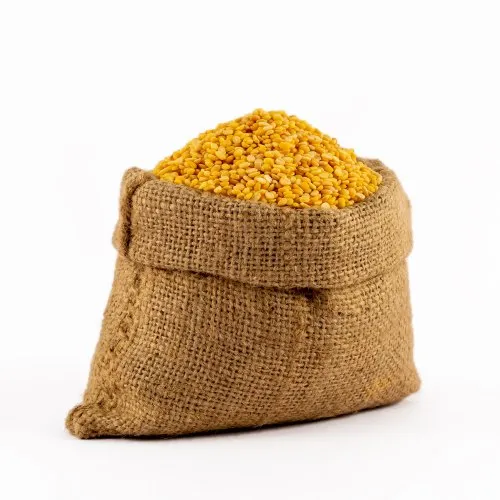Organic Moong Dal
₹117.0
| Brand | Terra Greens Organic |
| Speciality | Organic |
| Cuisine | Indian |
| Country of Origin | Made in India |
- Description
- Additional information
- Reviews (0)
- Q & A
- Sustainability Remark
- More Offers
- Store Policies
- Inquiries
Healthy and Organic cultivated organic moong dal. Easy to cook and good in taste.
| brands | Terra Green Organics |
|---|
You must be logged in to post a review.
Q & A
Organic dal, like any other organic food, is generally considered more sustainable compared to conventionally produced dal. Here are a few reasons why organic dal can be considered sustainable:
Reduced Chemical Use: Organic farming practices prohibit the use of synthetic pesticides, herbicides, and fertilizers. Instead, organic farmers rely on natural methods to control pests and diseases, such as crop rotation, companion planting, and biological pest control. This reduces the environmental impact of chemical runoff, which can contaminate water sources and harm ecosystems.
Soil Health: Organic farming practices prioritize soil health by promoting the use of organic matter, compost, and natural fertilizers. These practices help improve soil structure, water retention, and nutrient cycling. By maintaining healthy soils, organic farming supports long-term agricultural productivity and reduces soil erosion.
Biodiversity Conservation: Organic farming encourages biodiversity by creating habitats for beneficial insects, birds, and other wildlife. The absence of synthetic pesticides and the promotion of natural pest control methods help preserve beneficial insects that contribute to pollination and natural pest control.
Water Conservation: Organic farming often emphasizes water conservation techniques, such as efficient irrigation systems and water management practices. By reducing water usage and minimizing water pollution from synthetic chemicals, organic farming helps conserve water resources.
GMO-Free: Organic dal is produced without the use of genetically modified organisms (GMOs). This helps maintain genetic diversity and supports farmers' ability to save and exchange seeds, which is important for long-term agricultural resilience.
However, it's important to note that sustainability is a complex and multifaceted concept. While organic farming has many benefits, it also has limitations and challenges. Organic farming generally requires more land compared to conventional farming to achieve similar yields, which can be a limitation in terms of land use efficiency. Additionally, transportation and packaging practices also play a role in the overall sustainability of any food product, including organic dal.
It's recommended to look for additional certifications or labels, such as Fair Trade or Rainforest Alliance, which further ensure social and environmental sustainability in the production of dal or any other food product.
General Inquiries
There are no inquiries yet.

















Reviews
There are no reviews yet.